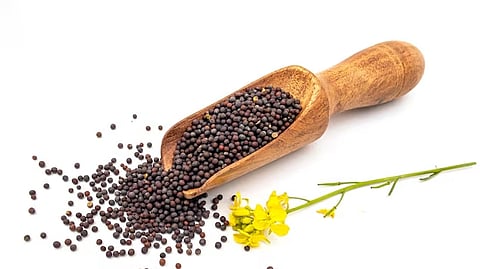

KOCHI: Mustard is a spice known to every Indian household as it is commonly used in various dishes from curries and savouries to various sauces and condiments. Mustard is native to Southern Europe and China. It is an annual herb cultivated as an oil seed, a vegetable or spice. In India, mustard is mostly grown in the northern and western regions, especially in states like Rajasthan, Uttar Pradesh, Haryana, Madhya Pradesh and Gujarat.
Various types of mustard include black mustard (Brassica nigra), white mustard (Brassica hitra) and brown mustard (Brassica juncea). Mustard seeds are one of the main flavouring agents in Indian cooking, especially in Bengali cuisine. It enhances the dishes with a unique flavour and colour, which come from the preservatives and the antioxidants present in mustard seeds.
Ayurveda recognises mustard for its medicinal qualities — it can aid digestion and stimulate appetite. Mustard also has anti-inflammatory and antimicrobial properties. So it can be used to heal skin infections, small injuries, muscle and joint pain, and soreness. Certain moisturising products also contain mustard that helps nourish the skin.
Medicinal properties
Thermogenic, anodyne, nnti-inflammatory, carminative, digestive, anthelmintic, sudorphic, tonic, emetic, abdominal colic, dyspepsia, flatulence, skin diseases